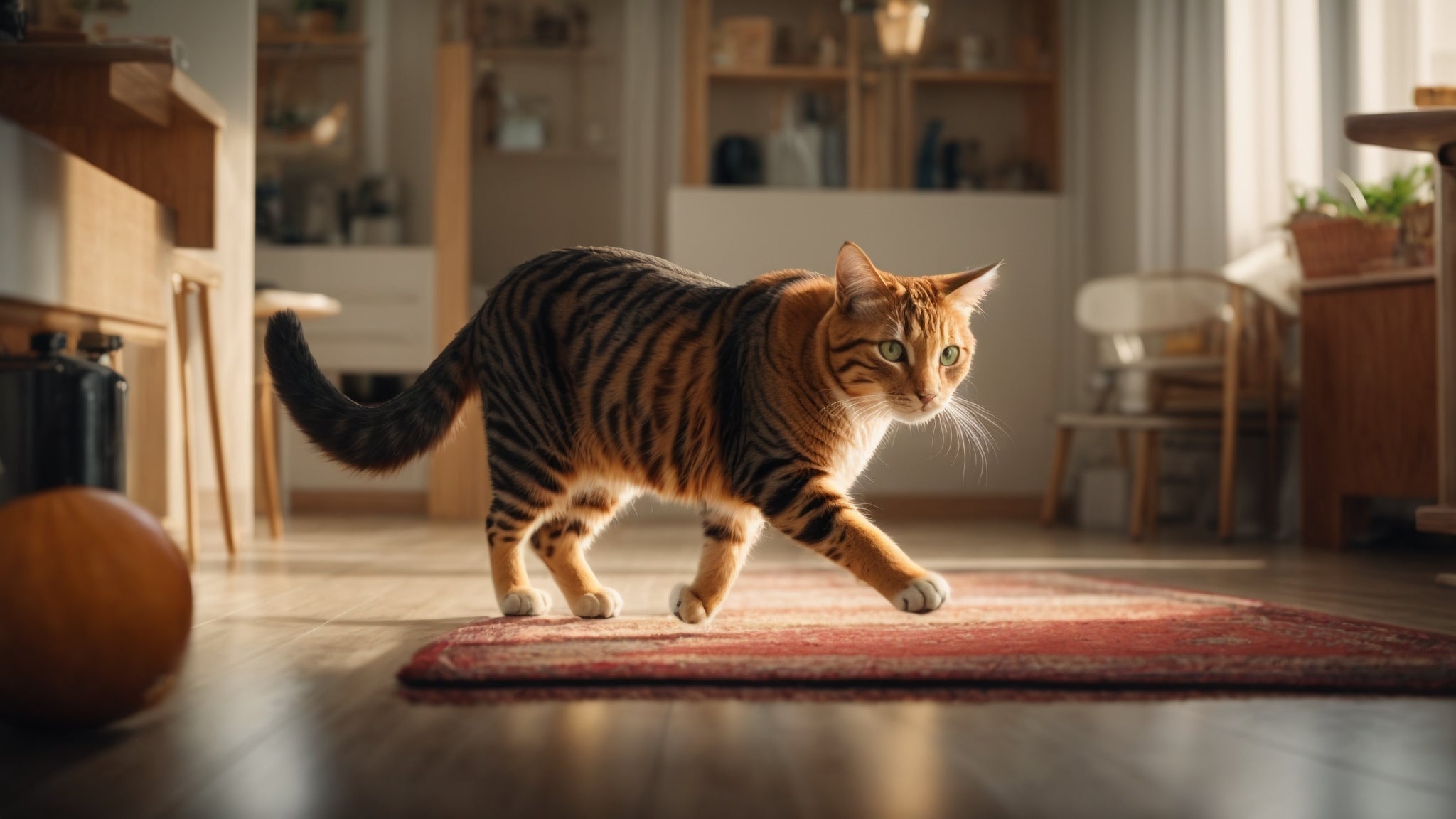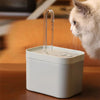Why Is My Cat So Active at Night? Understanding and Managing Nocturnal Behavior

Why Is My Cat So Active at Night?
The age-old question for many cat owners: why does my feline friend turn into a furry ninja the moment the sun sets? While it might seem like they're deliberately trying to keep you up, your cat's nocturnal antics are rooted in their natural instincts and biology. Understanding these reasons can help you manage their behavior and ensure peaceful nights for both of you.
Understanding Feline Biology: Crepuscular Creatures
Cats aren't strictly nocturnal; they're crepuscular. This means they're most active during dawn and dusk. However, many domesticated cats have shifted their peak activity to nighttime, likely due to several factors:
- Evolutionary History: Cats evolved as hunters. In the wild, their prey is often most active at dawn and dusk, and this activity pattern has been imprinted in their DNA. Domestication hasn't completely erased these instincts.
- Human Schedules: Our daily routines often clash with a cat's natural crepuscular cycle. During the day, we're frequently interacting with our cats, feeding them, and playing with them, sometimes disrupting their natural rest-activity cycles. This can lead to a build-up of energy that's released at night when we're trying to sleep.
- Environmental Factors: A quiet, dark home can trigger a cat's hunting instincts. The reduced stimuli might prompt them to become more active, searching for 'prey' even if it's just a toy or a dust bunny.
Common Reasons for Increased Nighttime Activity
- Boredom and Lack of Stimulation: If your cat isn't getting enough playtime and mental stimulation during the day, they may be acting out at night to alleviate boredom. Consider providing more interactive toys, puzzle feeders, or climbing structures to keep them occupied. Cat Toys – Every Pet Palace
- Medical Conditions: Hyperthyroidism, kidney disease, and cognitive dysfunction syndrome (CDS, similar to dementia in humans) can disrupt a cat's sleep patterns and lead to increased nighttime activity. If you're concerned about a sudden change in your cat's behavior, it's crucial to consult your veterinarian.
- Hunger: If your cat isn't getting enough food during the day, they may become more active at night, searching for sustenance. Try feeding them smaller portions more frequently,or using an automatic feeder. Cat Supplies – tagged "Bowls & Diners" – Every Pet Palace
- Stress and Anxiety: Changes in the household, new pets, or even moving furniture can cause stress and lead to increased nighttime activity. Ensure your cat has a safe and comfortable space to retreat to Cat Healthcare – tagged "Anxiety & Calming" – Every Pet Palace
Managing Nocturnal Cat Behavior
Fortunately, there are several ways to encourage your cat to be more active during the day and less active at night:
- Interactive Play Sessions: Engage your cat in active play sessions during the day, particularly in the late afternoon and early evening. Use toy wands, laser pointers (used responsibly), or puzzle feeders to stimulate their hunting instincts and burn off excess energy.
- Enrichment Activities: Provide ample opportunities for mental stimulation, such as scratching posts, cat trees, window perches, and puzzle feeders. A stimulated cat is a less likely to be a disruptive one.
- Consistent Feeding Schedule: Feed your cat at consistent times throughout the day and avoid feeding them right before bedtime.
- Create a Relaxing Bedtime Routine: A calming bedtime routine can help your cat wind down. This might involve brushing, gentle petting, or a quiet cuddle session.
- Gradual Adjustments: Don't make sudden changes to your cat's routine. Gradually shift their playtime and feeding schedule toward the daytime hours. Be patient and consistent.
When to Consult a Veterinarian
If your cat's nighttime activity is sudden, excessive, or accompanied by other concerning symptoms (such as changes in appetite, litter box habits, or grooming habits), it's important to consult a veterinarian. They can rule out any underlying medical conditions.
Conclusion
While your cat's nighttime zoomies might be frustrating, understanding their crepuscular nature and providing appropriate enrichment can significantly reduce their nocturnal antics. With patience, consistency, and a little understanding, you can help your furry friend adjust their activity schedule and enjoy peaceful nights together.




